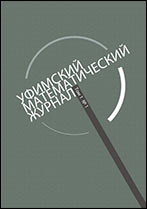|
This article is cited in 1 scientific paper (total in 1 paper)
On Taylor coefficients of analytic function related with Euler number
A. B. Kostina, V. B. Sherstyukovb
a National Engineering Physics Institute "MEPhI", Moscow
b Moscow Center for Fundamental and Applied Mathematics
Abstract:
We consider a classical construction of second remarkable limit. We pose a question on asymptotically sharp description of the character of such approximation of the number $e$. In view of this we need the information on behavior of the coefficients in the power expansion for the function $f(x)=e^{-1}\,(1+x)^{1/x}$ converging in the interval $-1<x<1$. We obtain a recurrent rule regulating the forming of the mentioned coefficients. We show that the coefficients form a sign-alternating sequence of rational numbers
$(-1)^n\,a_n$, where $n\in\mathbb{N}\cup\{0\}$ and $a_0=1$, the absolute values of which strictly decay. On the base of the Faá di Bruno formula for the derivatives of a composed function we propose a combinatorial way of calculating the numbers $a_n$ as $n\in\mathbb{N}$. The original function $f(x)$ is the restriction of the function $f(z)$ on the real ray $x>-1$ having the same Taylor coefficients and being analytic in the complex plane $\mathbb{C}$ with the cut along $(-\infty,\,-1]$. By the methods of the complex analysis we obtain an integral representation for
$a_n$ for each value of the parameter $n\in\mathbb{N}$. We prove that $a_n\rightarrow 1/e$ as $n\rightarrow\infty$ and find the convergence rate of the difference $a_n-1/e$ to zero. We also discuss the issue on choosing the contour in the integral Cauchy formula for calculating the Taylor coefficients $(-1)^n\,a_n$ of the function $f(z)$. We find the exact values of arising in calculations special improper integrals. The results of the made study allows us to give a series of general two-sided estimates for the deviation $e-(1+x)^{1/x}$ consistent with the asymptotics of $f(x)$ as $x\to 0$. We discuss the possibilities of applying the obtained statements.
Keywords:
Euler number, analytic function, Taylor coefficients, Faà di Bruno formula, integral representation, asymptotic behavior.
Received: 12.04.2022
Citation:
A. B. Kostin, V. B. Sherstyukov, “On Taylor coefficients of analytic function related with Euler number”, Ufa Math. J., 14:3 (2022), 70–85
Linking options:
https://www.mathnet.ru/eng/ufa623https://doi.org/10.13108/2022-14-3-70 https://www.mathnet.ru/eng/ufa/v14/i3/p74
|

|




 Contact us:
Contact us: Terms of Use
Terms of Use
 Registration to the website
Registration to the website Logotypes
Logotypes








 Citation in format
Citation in format 
